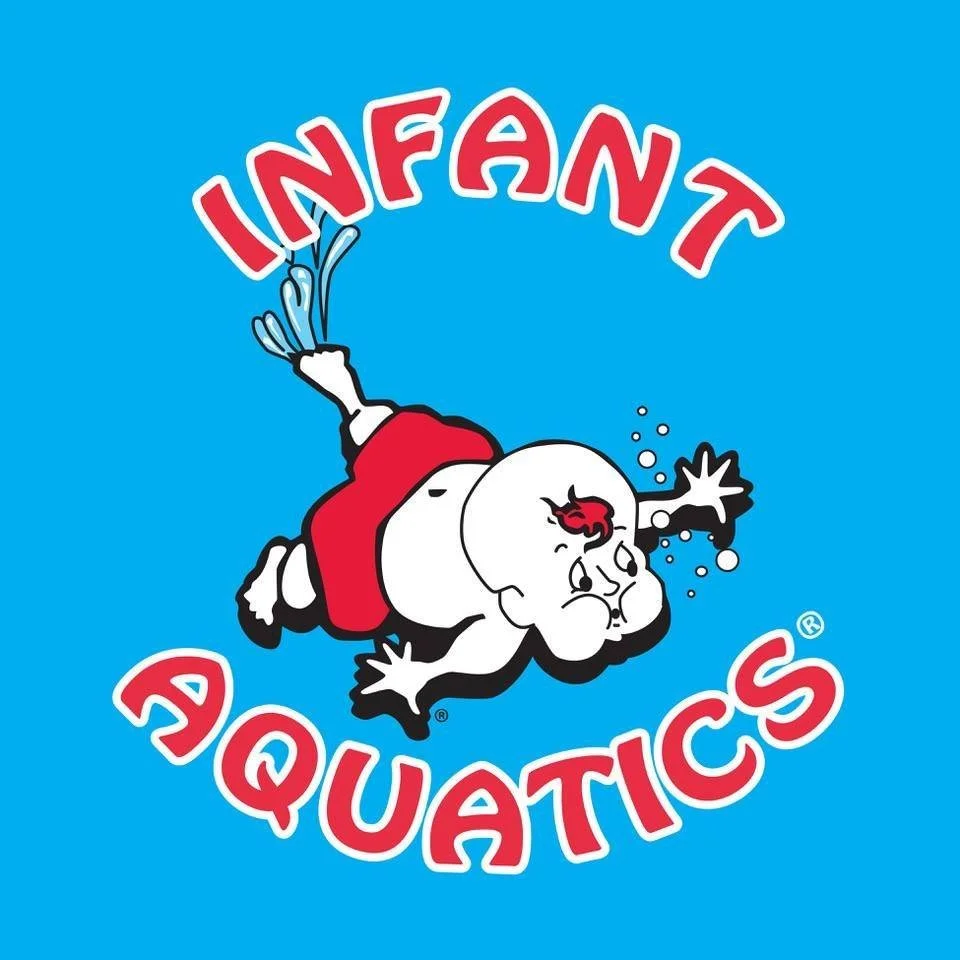
Frequently asked questions.
What is Survival Swimming? What makes Infant Aquatics® different from other lessons?
The most crucial survival swimming skill we impart to your child is the ability to transition from a face-down position in the water to an independent back float. Infants and toddlers lack the ability to lift their heads to breathe, making this skill a potential lifesaver! Furthermore, if your baby is walking, then he/she can also learn to swim to the pool’s edge or steps, rolling over to breathe when necessary.
The technique of "roll-over breathing" is omitted by many swim schools due to the time, expertise, and patience it requires. It's not easily covered in typical weekly group lessons. Nevertheless, once children master the art of rolling over to float, relaxing, and taking breaths when needed, they can truly swim, stay afloat, conquer fear, and delight in the pure joy of swimming!
What will my child learn?
For infants aged 6 to 12 months, we focus on imparting essential water safety skills. They are taught to hold their breath in the water, transition from a face-down position to a face-up back float, and relax and breath in their back float until help arrives. These skills are taught to be applicable whether the child is in a bathing suit or fully clothed.
Children over 1 year of age who are confident walkers are taught to take their swimming abilities to the next level. They learn to swim with their face in the water and transition to a back float when they need to rest or take a breath. Once they have caught their breath, they roll back over and continue swimming toward their intended destination, whether it's a parent, steps, or the pool's edge. In situations where no safe destination is immediately available, they are trained to maintain their floating position until assistance arrives.
Are swimming lessons for infants and small children safe?
Absolutely! The American Academy of Pediatrics now advocates for swimming and survival lessons for children as young as 1 year old. Your child's safety and well-being will be under careful observation and guidance during their lessons. This approach not only instills valuable skills but also provides parents with peace of mind regarding their child's water safety.
Will I be in the pool during lessons?
In most lessons, parents are not in the pool with their children. Near the end of the session, parents/caregivers will be invited into the pool for a lesson. During this lesson, your child can proudly demonstrate all their new swimming skills, and parents can gain valuable insights into how to safely encourage and support their child's swim-float-swim practice. It's a wonderful opportunity for both parents and children to interact and celebrate the progress made.
Why are lessons only 10 minutes long? Do we really need to attend lessons 4 days a week?"
Infants and young children excel in learning new motor skills through frequent, short-duration practice. The key to this learning process is repetition, which aids in building muscle memory. Shorter, more frequent lessons provide students with the opportunity to work diligently without becoming overwhelmed or fatigued. This approach optimizes the learning experience and helps children develop essential skills efficiently.
What if my child doesn’t finish in the allotted time?
Our primary focus is on your child's competence and safety, not a strict adherence to a predetermined timetable. Graduation from our programs is determined solely by the child's mastery of essential skills. We ensure that your child is safe and proficient in the water. If additional time is necessary, we will continue to work with them. As long as there is a reasonable commitment to attending all scheduled lessons, these additional lessons will be provided at no extra cost.
What are refresher lessons? Who needs refresher lessons?
Refresher lessons for babies are essential, not because they forget their skills, but because they naturally outgrow them. The rapid growth babies experience causes a shift in their center of gravity, impacting their ability to float effectively. These refresher lessons enable us to re-adjust the float position and ensure your child's swimming skills remain sharp.
It's worth noting that children can lose self-confidence if they are out of the water for even a short period. Without the opportunity to practice, your child may become hesitant, cling to you, and be reluctant to use their acquired skills. However, it's important to understand that these skills are not permanently lost. With refresher lessons, they can be fully restored, and your child can regain their confidence and proficiency in the water.
What about floatation devices and life jackets?
Floatation devices give children a false sense of security and hold them in postures that are not compatible with swimming skills. If a child learns that he/she can jump in the water and go into a vertical posture and be able to breathe, he is getting the wrong idea about how to stay safe in the water. Children who cannot swim should not be allowed to believe that it's safe to play in the water while relying solely on such devices.
While Coast Guard-approved life jackets are crucial when boating or near water where accidental submersion is possible, they are not a substitute for the ability to swim or for the vigilant supervision of adults. Safety around water goes beyond equipment; it involves acquiring proper swimming skills and ensuring continuous supervision to prevent accidents.

